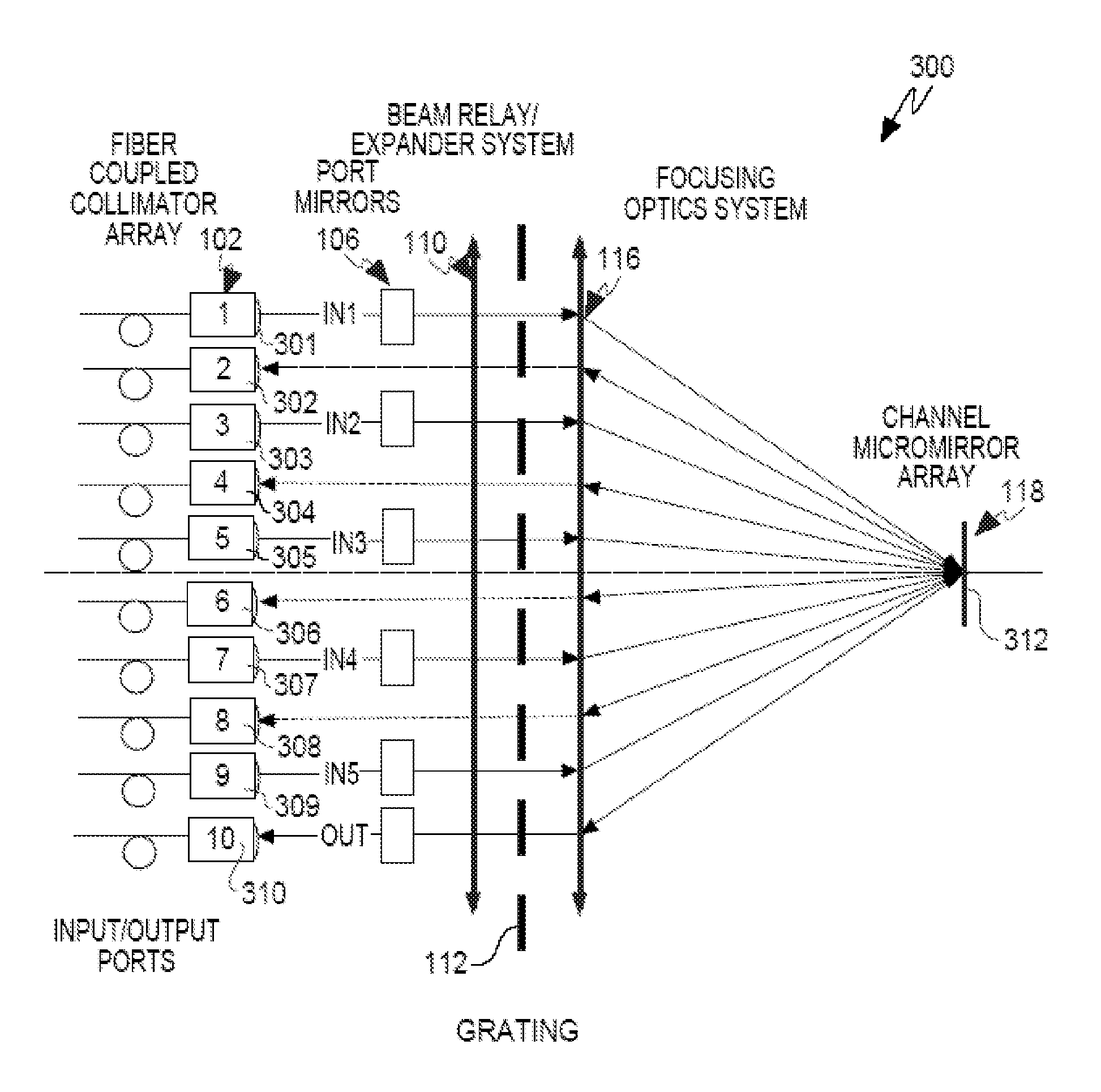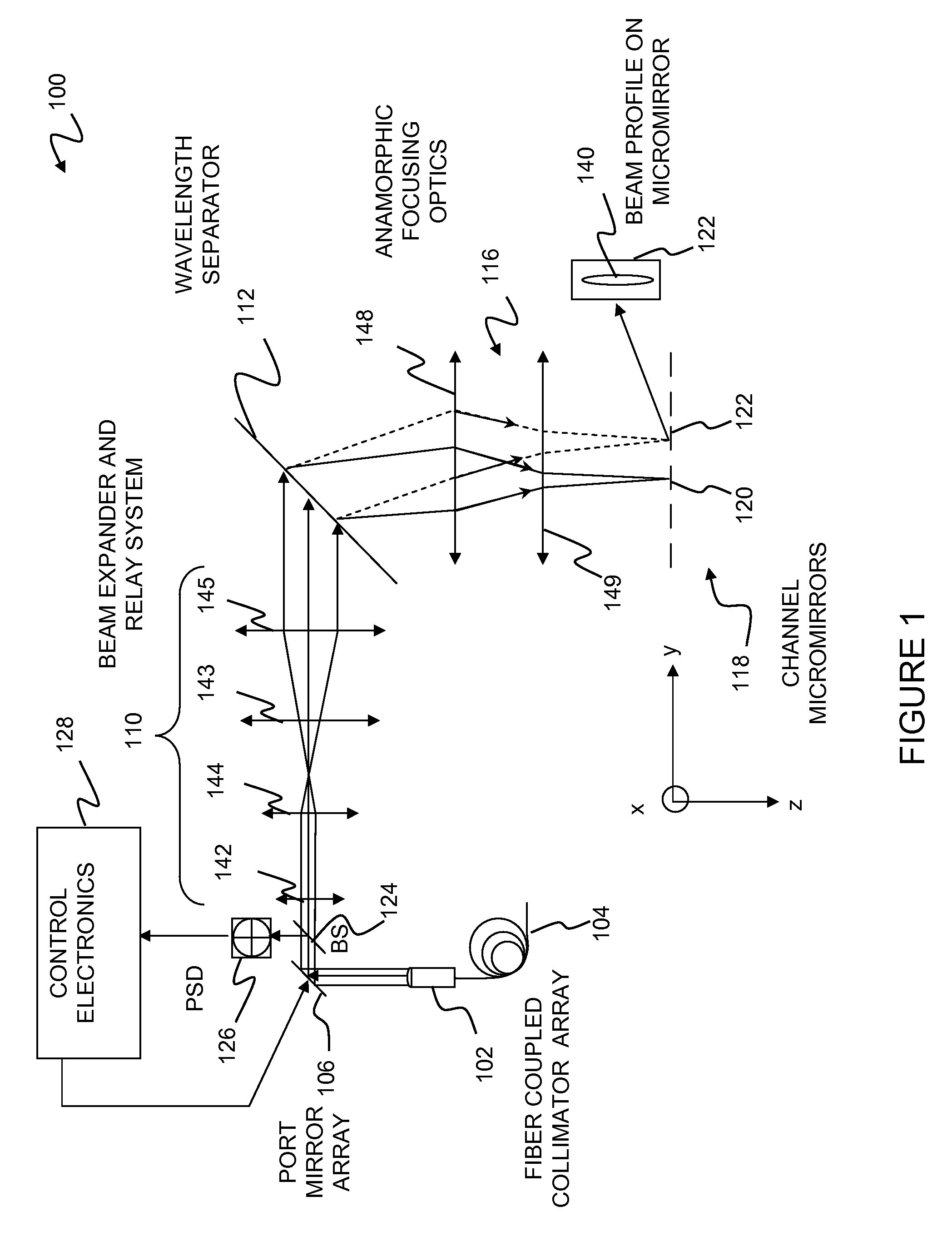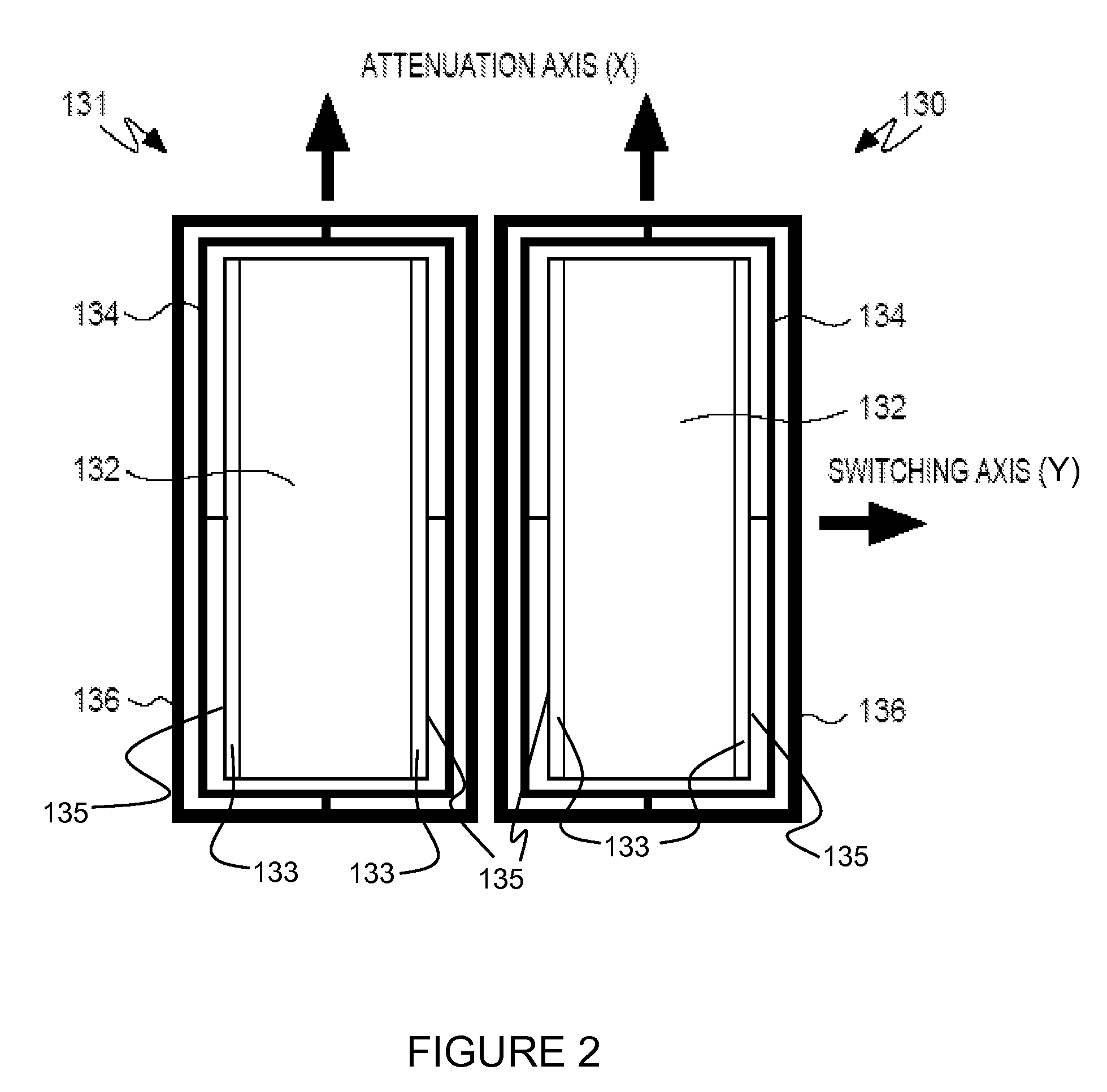Reduction of MEMS mirror edge diffraction in a wavelength selective switch using servo-based multi-axes rotation
a technology of servo-based multi-axes rotation and wavelength selective switch, which is applied in the field of wavelength selective switch, can solve the problems of unsatisfactory effects on the behavior of broadband amplifiers, and achieve the effects of reducing the increased power level, and optimizing the passband
- Summary
- Abstract
- Description
- Claims
- Application Information
AI Technical Summary
Benefits of technology
Problems solved by technology
Method used
Image
Examples
Embodiment Construction
[0032] Embodiments of the present invention are particularly applicable to wavelength selective switches (WSS) as used, for example, in reconfigurable optical add-drop multiplexers (ROADMs) permitting dynamic network reconfiguration and enabling management of the power or attenuation of individual spectral channels of a multi-wavelength (multi-channel) optical signal, such that signals can be readily added to or dropped from the network. One or more components of such switches are configured to reduce passband non-uniformities due to diffraction at edges of micromirrors used to switch optical signals from one port to another. It will become apparent, however, that this is illustrative of only one utility of the invention.
[0033]FIG. 1 is a diagrammatic view that illustrates the architecture of a portion of a wavelength selective switch 100 in accordance with an embodiment of the invention. One or more wavelength selective switches having an architecture as shown in the figure and co...
PUM
 Login to View More
Login to View More Abstract
Description
Claims
Application Information
 Login to View More
Login to View More - R&D
- Intellectual Property
- Life Sciences
- Materials
- Tech Scout
- Unparalleled Data Quality
- Higher Quality Content
- 60% Fewer Hallucinations
Browse by: Latest US Patents, China's latest patents, Technical Efficacy Thesaurus, Application Domain, Technology Topic, Popular Technical Reports.
© 2025 PatSnap. All rights reserved.Legal|Privacy policy|Modern Slavery Act Transparency Statement|Sitemap|About US| Contact US: help@patsnap.com



